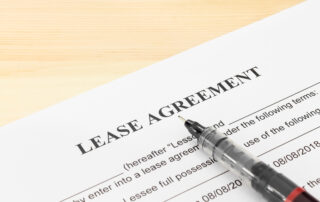HOW TO FIND THE RIGHT EXPERT WITNESS FOR YOUR REAL ESTATE LITIGATION CASE
In real estate litigation, finding the right expert witness can be the key to a winning case strategy. Expert witness testimony lends credibility to your view of case facts, helps clarify complicated or technical real estate matters, and presents a neutral perspective on the dispute central to your case. All of which can tip the scales in your client’s [...]








